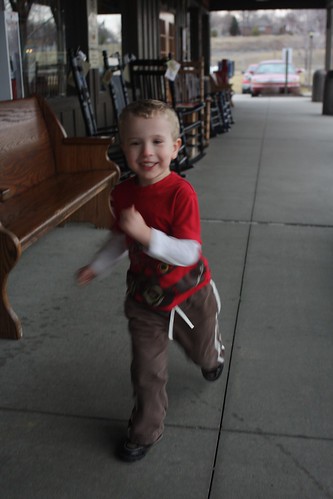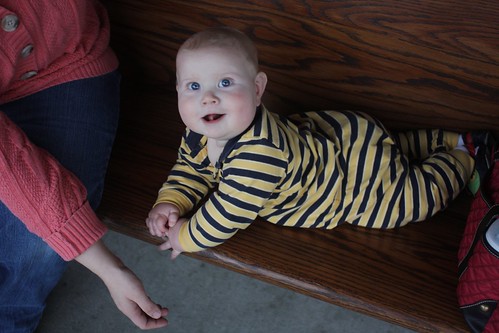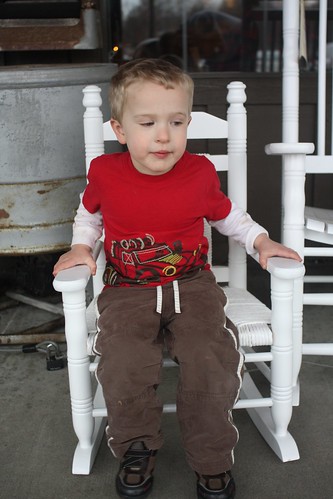Rick Steves is known for writing books, and producing public TV shows, about travel to Europe. He encourages people to get out of their comfort zone, advocates staying in homes instead of hotels, and giving yourself permission to struggle to communicate in a land of unfamiliar language. That way, you get to experience not just the landmarks, but the culture and history. That was the approach we favored in our recent trip to Europe, and after being there (and seeing tour groups), I think Rick Steves is right on.
On the plane to Europe, I read his Travel as a Political Act. This is not a guidebook, but more a book about the philosophy of travel. As usual with my book reviews, unless indicated otherwise, all quotes here come from the book. He starts out with this statement:
I’ve taught people how to travel. I focus mostly on the logistics: finding the right hotel, avoiding long lines… But that’s not why we travel. We travel to have enlightening experiences, to meet inspirational people, to be stimulated, to learn, and to grow. Travel has taught me the fun in having my cultural furniture rearranged and my ethnocentric self-assuredness walloped.
I read this book mostly on the plane to Hamburg, or the week prior to leaving. I can credit Rick Steves directly for encouraging me to strike up a conversation with a random German on the bus from Hamburg to Lübeck, which I’ll discuss here in a couple of days. Probably the biggest lament from Rick Steves is that the people that really ought to travel — the ones that are so sure that their ways are correct and best — are least likely to do so.
Make a decision that on any trip you take, you’ll make a point to be open to new experiences, seek options that get you out of your comfort zone, and be a cultural chameleon–trying on new ways of looking at things and striving to become a “temporary local.” … My best vacations have been both fun and intensely educational … Travel challenges truths that we were raised thinking were self-evident and God-given. Leaving home, we learn that other people find different truths to be self-evident. We realize that it just makes sense to give everyone a little wiggle room.
The book is set with an introductory encouragement to travel, followed by seven vignettes of different countries he’s visited, and descriptions of how it’s impacted him. He gave a lesson of the opening of the German Reichstag (parliament building), which he was present for in 1999. He was surrounded by teary-eyed Germans — and a few tourists “so preoccupied with trivialities — forgotten camera batteries, needing a Coke, the lack of air-conditioning — that they were missing out on this once-in-a-lifetime opportunity to celebrate a great moment with the German people.”
He comments that we can learn from other countries — that no one country has a monopoly on good ideas, and it is plenty patriotic to insist what we adopt good ideas (such as drug policy) from other countries and adopt them for our own.
Particularly touching to me was the description and photo of a memorial in El Salvador, very much looking like the American Vietnam memorial — except that one remembering loved ones lost fighting the United States. How many Americans even know that we were involved in a damaging war in El Salvador?
A large part of his book was, for me, “preaching to the choir,” as this comment illustrated:
In the European view, America is trapped in an inescapable cycle to feed its military-industrial complex: As we bulk up our military, we look for opportunities to make use of it. (When your only tool is a hammer, you treat every problem like a nail.) And then, when we employ our military unwisely, we create more enemies…which makes us feel the need to grow our military even more. If an American diplomat complained to his European counterpart, “America is doing all the heavly lifting when it comes to military,” the European might respond, “Well, you seem to be enjoying it. We’re building roads and bridges instead.”
That’s a sentiment I’ve agreed with for quite some time already, and as such, some parts of the book moved slowly for me — though I imagine his target audience included people that had never seriously considered these arguments before. Then there were surprising facts:
by the end of World War I, an estimated half of all the men in France between the ages of 15 and 30 were casualties. When some Americans, frustrated at France’s reluctance to follow us into a war, call the French “surrender monkeys,” I believe it shows their ignorance of history.
And again, I’d agree with him on that point.
The vignette on Iran was particularly interesting, as he described his experiences in person, they sounded far different than the picture we often get in the media.
I have realized, incidentally, that I am terrible at writing book reviews. So rather than inflict more paragraphs upon you with this one, I’ll summarize by saying that this is a touching, informative, and motivational book, which I highly recommend. I’ll leave you with this quote:
Mark Twain wrote, “Travel is fatal to prejudice, bigotry, and narrow-mindedness.” These wise words can be a reallying cry for all travelers once comfortably back home. When courageous leaders in our community combat small-mindedness and ignorance… travelers can stand with them in solidarity.
I didn’t travel to make some sort of statement or as a “political act.” But I was enriched in many ways by travel — of course the obvious ones of contemplating the history of a 900-year-old beautiful church, but also in seeing the different character of different cities, being with two families for a couple of days, and seeing different approaches to common problems. I am very glad I wasn’t shut off from this behind a tinted window in a tour bus.


